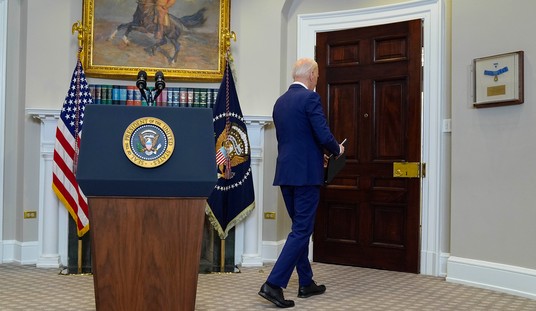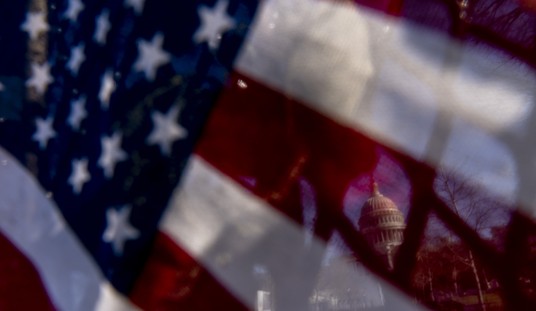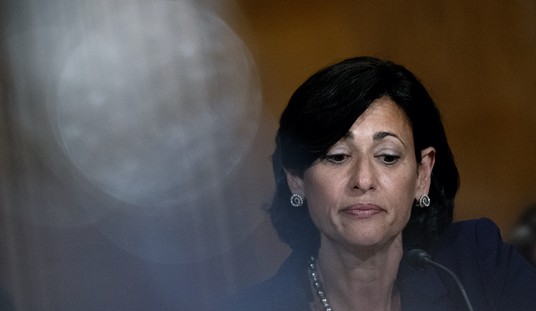Consider this a double down in a high-stakes game of poker. After Harry Reid and Barack Obama dared that John Boehner to hold a vote on a clean debt-ceiling increase, Boehner replied that Reid couldn’t pass one in his own chamber — a warning that the Republicans would block such a vote. With the bluff on the other side of the table, Reid has no choice now but to try:
Democrats controlling the Senate are planning to try to pass a stand-alone measure to increase the government’s borrowing cap, challenging Republicans to a filibuster showdown that could unnerve financial markets as the deadline to a first-ever default on U.S. obligations draws closer.
A spokesman said Senate Majority Leader Harry Reid could unveil the measure as early as Tuesday, setting the table for a test vote later in the week. The measure is expected to provide enough borrowing room to last beyond next year’s election, which means it likely will permit $1 trillion or more in new borrowing above the current $16.7 trillion debt ceiling that the administration says will be hit on Oct. 17.
The development came as a partial shutdown of the government enters its second week with no end in sight.
Can Reid call Boehner’s bluff? The AP notes that a few Republicans seem leery of going to the mattresses on a matter that could create a large amount of economic damage:
Some Republicans seemed wary of participating in a filibuster that could rattle the stock and bond markets.
“We shouldn’t be dismissing anything out of hand, whether it’s the debt ceiling or what we’re going to do with this government shutdown,” Sen. Lisa Murkowski, R-Alaska, said. “We’ve got a situation where you’ve got a calendar running, you’ve got people who are frustrated and upset, so let’s figure it out.”
On the other hand, Democrats have been surprised to discover that everyone isn’t blaming the GOP alone for the crisis:
Democrats have the advantage in the government shutdown debate, but it’s not the rout that many anticipated.
While polls show that more people blame Republicans than Democrats, the margin is not so lopsided that GOP leaders feel compelled to back down.
Democratic strategists confidently predicted last month their party would trounce the GOP in the court of public opinion in the event of a shutdown. But a week after government funding expired, some Democrats have a tough time reading the scoreboard.
“I don’t think anyone comes out of this looking better than when it started,” said former Sen. Byron Dorgan (D-N.D.). “It’s kind of a pox on everybody’s house.”
Democrats have had their share of missteps over the last week, including the World War II Memorial controversy, the interruption of the Amber Alert government website and a gaffe by Senate Majority Leader Harry Reid (D-Nev.).
The lack of certainty in the polling and the series of gaffes by Democrats at both ends of Pennsylvania Avenue have opened up a rift between the White House and the Senate, Politico reports:
For the past several weeks, Senate Democrats and the White House have shown a remarkable amount of unity in the controversial fight surrounding the debt ceiling.
Then came shutdown Day Seven.
Just as top Senate Democrats began to lay the groundwork to raise the U.S. government’s borrowing limit through 2014, senior White House officials refused to rule out a short-term increase. The divergent messages caused major heartburn for top Senate Democrats and gave Republicans fresh hope that they could defeat a yearlong debt ceiling hike and win concessions from President Barack Obama in this fall’s fiscal battles. …
Democrats began to raise concerns privately that the White House appeared to be softening its iron-clad position.
“This is very disconcerting to us,” a senior Senate Democratic leadership aide said on condition of anonymity, referring to comments by the president’s top economic adviser, Gene Sperling, at POLITICO’S Playbook Breakfast on Monday. “All along, the president and White House have been firm on what they want, both in a [government funding bill] and debt ceiling. So we’re concerned about this.”
Senate Majority Whip Dick Durbin (D-Ill.) said, “What does short-term buy us? That buys us Thanksgiving in Washington.”
The White House may be seeing this more clearly than the Senate. A default due to a game of chicken over a refusal to negotiate on budgetary matters will end up on Barack Obama’s scorecard, not just House Republicans. As the executive, he will take the brunt of the blame — especially over his obstinacy over the puzzling notion that Republicans aren’t allowed to participate in funding decisions through negotiations even though they control the House of Representatives. This isn’t war policy, after all, but the spending mechanism that the Constitution establishes as the House’s area of primacy.
If Reid can pass the debt-ceiling hike, though, it will shift pressure back to Boehner to take up the bill, especially after his bluff this week. However, that’s still a mighty big if.
Note: There is lingering confusion over the limits on the Senate regarding budgets. It’s true that the House has to originate bills that raise revenue (Article I Section 7 of the US Constitution), but either chamber can originate spending bills. Since the debt ceiling is not a tax, the Senate can originate it. Thanks to SteveEgg in the comments for pointing out the confusion.







Join the conversation as a VIP Member